
Edward Dowden was an Irish critic, professor, and poet.
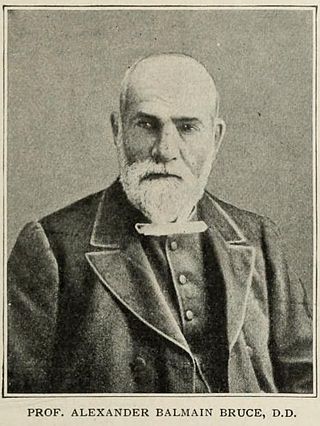
Alexander Balmain Bruce was a Scottish churchman and theologian. He was a minister of the Free Church of Scotland.

Alexander Hugh Bruce, 6th Lord Balfour of Burleigh, was a Scottish Unionist politician, banker and statesman, who took a leading part in the affairs of the Church of Scotland. He was Secretary for Scotland between 1895 and 1903.
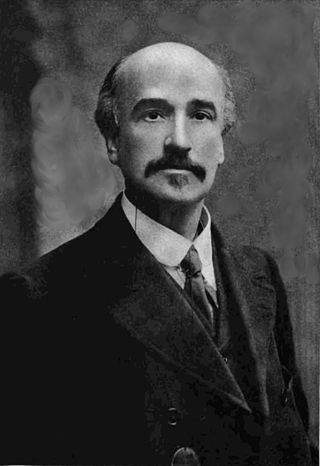
John Davidson was a Scottish poet, playwright and novelist, best known for his ballads. He also did translations from French. In 1909, financial difficulties, as well as physical and mental health problems, led to his suicide.

Herbert Edward Ryle was an English Old Testament scholar and Anglican bishop, successively serving as the Bishop of Exeter, the Bishop of Winchester and the Dean of Westminster.
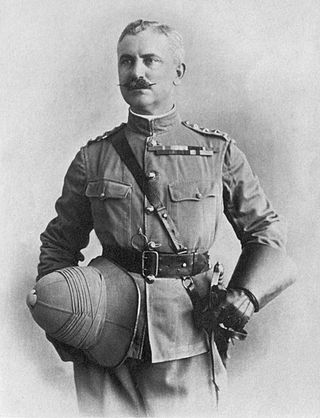
General Sir Francis Reginald Wingate, 1st Baronet, was a British general and administrator in Egypt and the Sudan. He earned the nom de guerre Wingate of the Sudan.

Sir Reginald Theodore Blomfield was a prolific British architect, garden designer and author of the Victorian and Edwardian period.
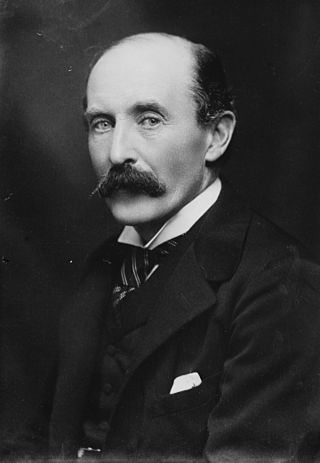
Arthur Nicolson, 1st Baron Carnock,, known as Sir Arthur Nicolson, 11th Baronet, from 1899 to 1916, was a British diplomat and politician during the last quarter of the 19th century to the middle of World War I.

Mashonaland is a region in northeastern Zimbabwe. It is home to nearly half of the population of Zimbabwe. The majority of the Mashonaland people are from the Shona tribe while the Zezuru and Korekore dialects are most common. Harare is the largest city followed by Chitungwiza.
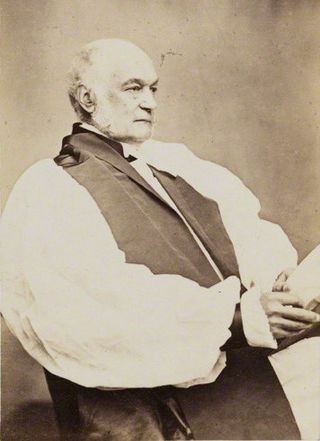
George Moberly was an English cleric who was headmaster of Winchester College, and then served as Bishop of Salisbury from 1869 until his death.
Bernard Mizeki was an African Christian missionary and martyr. Born in Mozambique, he moved to Cape Town, attended an Anglican school, and became a Christian.
Nelson Wellesley Fogarty (1871–1933) was the first Anglican Bishop of Damaraland (Namibia) from 1924 to 1933.
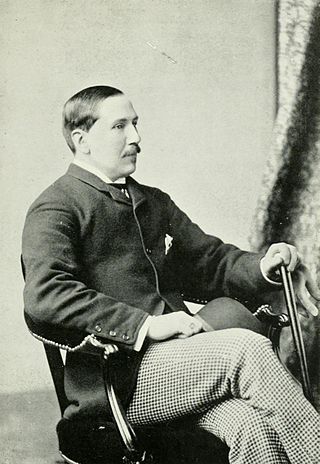
Sir Edward Walter Hamilton,, also known as Eddy Hamilton, was a British political diarist and Joint Permanent Secretary to the Treasury.
The Anglican Diocese of Harare is a diocese of the Church of the Province of Central Africa. The Anglican Diocese of Mashonaland was formed in 1891 and its first bishop was George Knight-Bruce. He was succeeded by William Gaul (1895–1907), formerly Rector of St Cyprian's Church in Kimberley, Northern Cape. Small in stature, Gaul styled himself “the smallest bishop with the largest Diocese in Christendom.” In 1915 the diocese became the Diocese of Southern Rhodesia until 1952 when it reverted to the Diocese of Mashonaland. The diocese was known as the Diocese of Harare and Mashonaland, until changing his name to Diocese of Harare. It has experienced great turbulence in recent times.

Archibald Robertson was the seventh Principal of King's College London who later served as Bishop of Exeter.
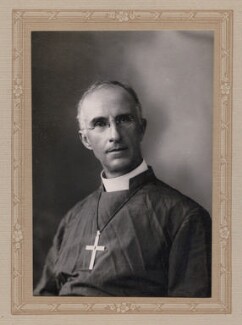
John William Ashton was the second Bishop of Grafton.

The Cathedral Church of St Cyprian the Martyr, Kimberley, is the seat of the Bishop of the Kimberley and Kuruman, Anglican Church of Southern Africa. The building was dedicated in 1908, becoming a Cathedral when the Synod of Bishops mandated formation of the new Diocese of Kimberley and Kuruman in October 1911. The first Bishop, the Rt Revd Wilfrid Gore Browne, was enthroned there on 30 June 1912.
John Wale Hicks FRCP was an Anglican bishop, educationalist and author in the second half of the nineteenth century. He was identified with the Anglo-Catholic tradition of Anglicanism.

Sir George Hugh Wyndham was a British diplomat who was minister to Serbia, Brazil and Romania.
















